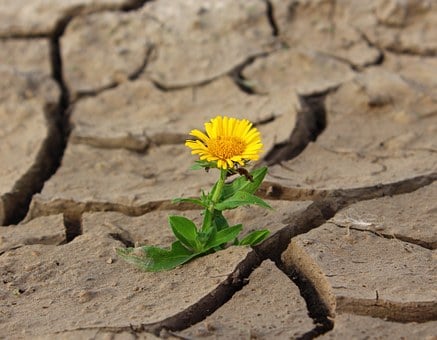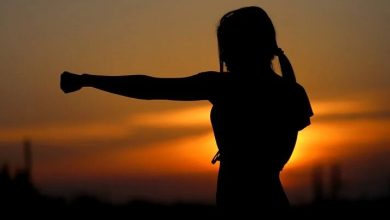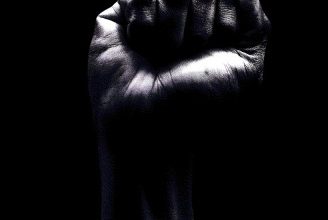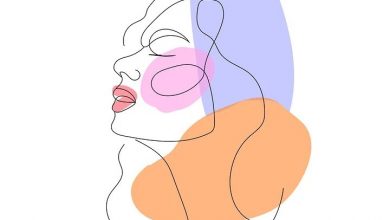
Village People by Bessie Head is a short story, taken from her Tales of Tenderness and Power collection. It consists of an introductory passage and a couple of small but impactful anecdotes. It is written in first person, but each anecdote is told from the perspective of a different narrator. However, they are all set in the same African village, located in the middle of a desert. This ties in perfectly with the title of this piece- Village People. Head indeed presents different examples of incidents and everyday life for people in her village, which reiterate the message in her introductory passage- that the people of her village are full of humility and love. Head’s writing is reminiscent of the stream of consciousness technique. She uses description and interaction throughout the anecdotes to create a vivid visualization for the readers. Further, the authenticity and genuine feeling of her writing shines through in every word. She explores important topics, such as poverty and the difficulty of life, in a calm manner. The main themes of this piece are humility, poverty, acceptance, fear and struggle.
Village People | Summary
The story begins with a narrator describing what poverty is to her African village- something natural, which people accept with dignity, unlike many other places in the world. They do not look at each other’s status, but into their eyes and the depth of their soul. The vastness of their land strips humankind down to their simplest form, for there is no other way to explain the humility and kindness of the people in her village. After all, poverty is something they have adapted to- they eat millet and thick millet porridge for all three meals, they carry their loads on their heads, they collect their water and necessities from miles away,
However, there is inexplicable pain and difficulty to it, as well. Babies most easily die from starvation, and one those occasions, the mothers sit quietly in their suffering till it is a numb, dull ache in their mind, a part of life. It is not right, but they have no alternative. The fate they will face on stepping out of the safety of this mindless lifestyle and living alone is far more dangerous- the only few who have tried have been rendered a quiet, harmless insane. It is negative for one’s goal to simply be to exist- there must be more to life. But even as she says this, the narrator wonders what that is. They live in the middle of nowhere, they are timid and closed to strangers, they survive by making minimal demands…yet they are more confused within this safety than they would have been if they were given the opportunity to travel beyond the boundaries. the narrator wonders whether they only accept change within their limitations, or whether it arrives as calamity. And the reason she asks is, despite their anonymity as a village, they are full of love and warmth that must be visible to God- it should act as a balance. She concludes that God possibly overlooks their little village in the desert, but wishes to remind him that they, too, need to be taken care of.
What follows is a story set in the same village, titled The Old Woman- an anecdote detailing an interaction that a different narrator had with an old woman. The old woman is described as thin and frail, with knobby limbs and a tattered petticoat. She wore her sand-shoes on the wrong feet, all her toes sticking out. Despite all of this, she looks strong, so the narrator is shocked when she stumbles over, gasping for water. The narrator rushes to the hut to ask for help, explaining that the old lady is ill. But the old lady corrects her, saying that she is not ill, but hungry. Her words make the crowd laugh in shock, for they could not imagine someone expressing their need so directly. Old women are like children- they cry when they are hungry, even as the crowd turns away, so the narrator quickly tells her that a small child will guide her to the narrator’s hut, where she is to wait until the narrator arrives to prepare food.
The incident slipped from the narrator’s mind later on in the day, until a young woman quietly comes up and placed a pail of water beside her. She did not speak for quite a few moments, only looking around expressionlessly and avoiding the narrator’s gaze. The narrator is confused, requesting the neighbour to ask the young woman what happened. The young woman then explains that the narrator is responsible for helping their relative- the old lady- who collapsed that morning. They have nothing to give in return except a pail of water everyday. The woman also adds that it should be known that in Africa, which is judged by grain and greed, God walks around barefoot and simple, without gold-studded cloaks.
The second anecdote recounted is titled Summer Sun. This centers around a different narrator, presumably still located in the same African village. She is lying asleep under a thorn tree, surrounded by the desert. She wonders if there will be rain- they need it to plough. Every day, she has been sitting there with her relatives, waiting and hoping. If there was rain, her grandfather and cousin would pull the oxen throughout their land, and the women would follow behind, sowing. The narrator feels great pity for hers and others’ families- she wonders why they must sit there. Soon, they will have to return to their village, where a politician will make them pray for rain on the hill.
The people believe that the rain will truly fall when the politician finishes praying and crying- in his smart suit and with his deep voice, they think he has the power to communicate with God. The narrator then reveals that while lying under the tree, she is trying to learn English. Her cousin, Lebenah, told her that Africa is developing and women need to improve themselves- he said that there is huge knowledge to be gained from knowing English. With adoration for her cousin, the narrator began her journey to learn this language.
Lebenah gifts her a geography book which she has read several times. What she learns makes her afraid- each year, there is a hotter sun and less rainfall. There is more cattle death. Only the goat survives, for which she is grateful- what would they do without the goat? It is so similar to them and their family. She is trying to improve herself, too, so she does not have an illegitimate baby like her older sister. It would cause her family much pain- even the child may die. It is not easy for a woman to improve herself and have many children at the same time, for a child is a lot of responsibility.
The narrator then thinks back to everything she learnt in her geography book, and how it applies to her life. How can they live this way? Tomorrow, the sun will rise again, and unlike the birds that welcome it, she will not. To her, the sun’s unforgiving rays are the cruel omen of death. In the evening, as the sun sets, the family will settle into a gentle routine- making dinner, feeding the baby, and talking quietly. the narrator thinks of how difficult it would be if they did not love each other so much. She does not know what she would have done in that case, for the sun will rise once again tomorrow.
Village People | Analysis
Village People by Bessie Head begins with an explanation of what poverty is to their African village- Head describes it as a “second skin” which alludes to how ingrained it is into their lifestyle. She then brings up an interesting point- poverty is such a norm that it does not create classification within the community based on status. After all, it is something every one of them experiences, to the point where they have learnt to accept it and carry themselves with dignity. We may be much reminded of the concept of school uniforms- everyone is given the same set of clothes to wear so that they look at one another beyond the superficiality. Here, in this African village, it is the goodness of the soul that matters. With one look into the other’s eye, they can tell if the person will be a friend or foe.
We also see a more negative and disturbing side of acceptance. On one hand, the narrator asserts the gentleness of the people in her village- they know of their poverty, but do not let it stop them from being kind. They have accepted their life and maintain humility despite it. On the other hand, accepting poverty means having to accept the calamity that comes with. One of the examples here is mothers having to accept the death of their infants due to starvation. Lack of food resources is a part of poverty, so it has become an expectation that many infants would not make it. Still, it is a cruel reality of life for one- especially a mother- to accept. As the narrator says, “It is not right.” This section of the text provides an enlightening counter perspective to the first passage about the acceptance of poverty, creating a firm balance. This balance is very much necessary, because though Head wants to focus on the kindness of her people, it is important to clarify that their humility does not mean poverty is easy.
Head explores reasons that her little village has not grown- they are resistant to change that is not within the safety they already know, and the possibility of outsiders. When she says “It may be that they overlook desert and semi-desert places. I should like to remind them that there are people here too who need taking care of”, it suggests that she is not speaking about the entirety of Africa. Like any continent, Africa consists of countries with big cities, towns, as well as small villages. Hence in these lines, Head highlights the fact that each region of the continent faces a different situation– and the poverty of her village, embedded into the deserts, is very prominent but easily overlooked. This opening passage establishes the context for the two following anecdotes. The readers are clear with the setting and location, the overall themes, and the nature and situation of the people.
In the first anecdote, The Old Woman, there is a switch in the narrator. We see a small incident with a big impact. The first important thing to note is that despite describing the old woman as “frail that her whole body swayed this way and that like a thin stalk of corn in the wind”, the narrator also said, “Yet she seemed so strong that it was a shock when she suddenly bent double.” One would not expect to view such a frail, old woman as strong, yet that is how the old lady came across. This may be an implication of inner strength, and the way with which she carried herself. As mentioned in the introductory passage, in their village they do not look at the status or outer appearance, but at the eye which reflects the soul.
When the woman corrects the narrator saying she is not ill, but hungry, the crowd is shocked at her blatant expression. This highlights the theme of desperation that comes with poverty and starvation. She is not ashamed to admit that she needs food, because she knows that without it she might even die- it is a necessity for her survival. Finally, we see an example of the warmth and humility that was earlier mentioned- in fact, we see two. The first is when the narrator unhesitatingly tells the woman to wait in her house so that she can cook for her. This is such a natural reaction that the narrator even forgets about the incident after it happens- the fact that it slips her mind shows that it is not something she expects to be paid back for. She did it out of the goodness of her heart, and that’s all there was to it. This sort of kindness is rare- to her, it was a small gesture, but it ended up possibly saving the old woman’s life.
The second gesture of warmth is when the young woman- presumably the old woman’s daughter- comes to find the narrator and gives her a pail of water. As the narrator did not expect anything in return, this did not have to be done– especially because the narrator did not even know the old woman had relatives. The relatives did not have to repay her in technicality. But so great was their gratitude that they decided to give her a pail of their water everyday. It is clear that they are impoverished and they probably need that water to survive, but they want to give the little that they have to the narrator in thanks. This highlights the way they want good people to be rewarded. It also shows the care the family members have for each other.
It is interesting to note that the neighbour had to act as a medium between the narrator and the young woman, as the woman would not speak directly to her. It is possible that her gratitude overwhelmed her from being able to look the narrator in the eye. But her final words are more than enough to express her heart- she likens the narrator to God, quite possibly the highest level of praise. From this, we see that they associate God to selfless beings who arrive quietly to help and expect nothing in return. She also says thus
“Tell them how natural, sensible, normal is human kindness. Tell them, those who judge my country, Africa, by gain and greed, that the gods walk about her barefoot with no ermine and gold-studded cloaks.”
This line captures the essence of this story and resonates with the readers. In a world where everything is fast-paced and driven by greed and money, it is the people stricken by poverty who are the humblest. The significance of this statement is that it is more likely to find warmth in one who has nothing than in one who has everything. God does not have to come in the form of a gold-studded being so similar to all the developed and rich people in the world- he may just as well come in the form of a human in their simplest state of being, with the purest and kindest heart.
The second and final anecdote is titled Summer Sun. It focuses on the narrator and her family dreading the daily scorching heat and hoping for rain instead- without rain, there is no way to plough their fields. And until they can plough, they have no work to do during the day. Hence every morning, from the time the sun rises till it sets, they all lie under the tree in the midst of the desert and wait, praying for clouds of rain. Here, we can see a sense of helplessness. Nature is something that cannot be controlled, yet it is on this which their livelihood lies. They are in a position where they can do nothing but sit and wait. We also see acceptance here, as there is no other option but to accept the ways of Mother Nature. The mention of the politician, whom they believe can communicate with Gods through his praying, implies the hold that social hierarchy and economic stability have on the village. One is considered to be above everybody else because of his dignified appearance and education.
The other theme highlighted in this part of the story is family and familial love. They all sit together, waiting for the rain. They all work together, and the narrator even says that she adores her cousin and would do anything he asked. In this case, it is learning English- he said Africa is developing and women need to improve themselves. This is a subtle but context-placing hint of the position of women in the village’s socio-economic sphere. They are placed below men in terms of education and ability- and they seem to believe in this, as well. However, it is clear that within their family, there is support for the women educating themselves. The narrator also says that she does not want to bring suffering to the family by bearing an illegitimate child like her sister did. Further, she says it is very difficult to improve oneself while having to look after a child. This point resonates with further background information- the author, Bessie Head, was born to a “white” mother and a “non-white” father in South Africa, at a time when it was considered illegal. Further, her mother was not able to keep her as she was born when her mother was in intense mental health hospitalization. Head was immediately sent to foster care, and was returned to authorities when the family realised she was not white, but brown. With this context in mind, we may imagine that Head was thinking back to her own experiences as she explores the difficulty it takes to raise a child in such a situation.
The story concludes in a gentle, slightly despondent acceptance of reality. The narrator fears the rise of the sun the next day, the scorching heat of its rays- she wants nothing more than the sun to be hidden by clouds of rain. This is a huge contrast from the usual depiction of hope in other media, literature and general conversation. People often offer their support by reminding others that “The sun will come up again tomorrow”- this is a way of saying that tomorrow is a new day, another chance. It is a way of telling someone to power through the day even when it is difficult, and start afresh for the next one. To have hope for the future and not give up, because no matter what happens today, the sun will come up tomorrow and they can try again.
In this story, however, hope is all this family is living on. They can do nothing else besides hope and pray. Yet the idea of the sun rising- which signifies a new day- is their biggest enemy. While the sun represents hope to the test of the world, to them it symbolises their destruction and pain. This contrast highlights the difference between their village and the rest of the world. The narrator then tries to calculate the odds of rain, looking around and linking it to what she read in her geography book. From the way the narrator is able to connect her surroundings to the book she read, we can see that she is indeed improving herself already, and that she is naturally extremely intelligent. It leads the readers to wonder what her life may have been like in a different setting, given the immense emotional and intellectual potential. However, the narrator then says this of her family:
“I do not know what we would do if we all did not love one another, because tomorrow the sun will rise again.”
From this, we can see that she dreads the dawn of a new day. But at the same time, despite the unforgiving circumstances of her family, their love for each other overpowers any suffering. They thrive on each other’s support, on the warmth and affection they have for each other. Without such a bond, it would be impossible to sit unknowingly and helplessly through days of scorching heat from the sun. After all, there will be a new day- the sun will rise, and the family cannot know what to expect, or how long they will have to wait for the rain. They do not know whether there will be rain at all. But with their love for each other, they are able to push on. Love is one of the purest and most raw human emotions- it links back with a line in the opening passage: “One might say that in its vastness is a certain kind of watchfulness that strips man down to his simplest form.”




